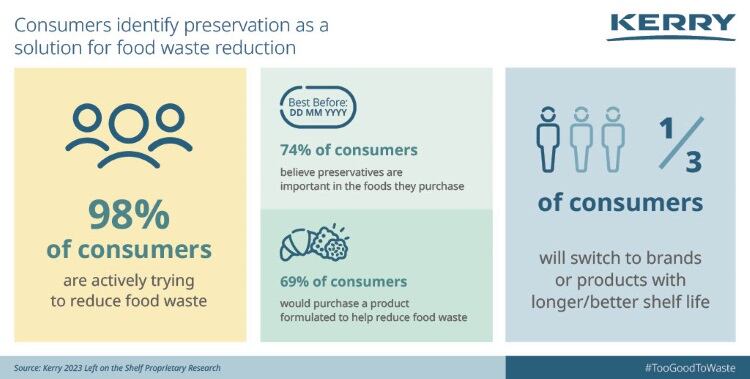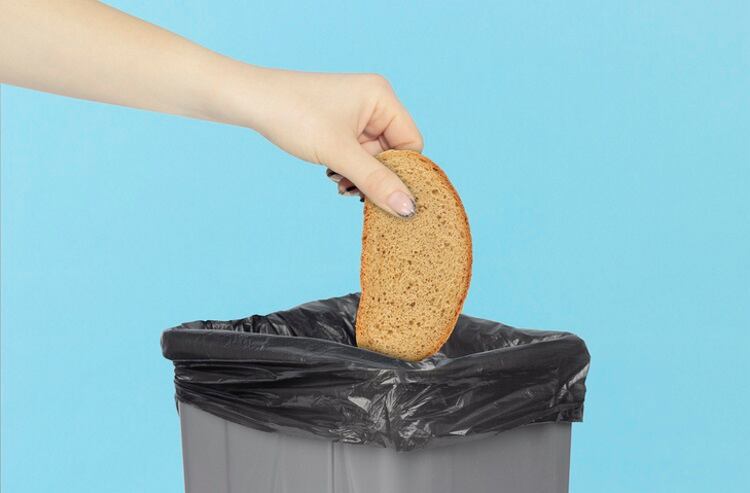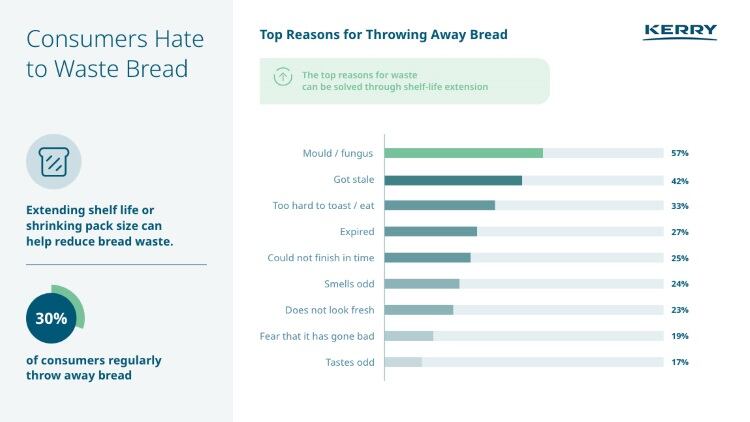This openness to change is being driven by a strong desire to act on food waste, underscored by factors like soaring financial anxieties (70%), environmental considerations (59%) and guilt over people going hungry (52%). Kerry’s survey also found 46% have had a stronger mindfulness ingrained in their upbringing.

Today, a third of all food produced globally goes to waste - that’s 1.3 billion tonnes of food binned globally every year, estimated to be worth $230bn. And it’s not just inefficient - much can be recovered through alternative uses - given the large number of hungry people, it’s a social justice issue.
Google ‘The World Counts’ and the counter that unrelentingly clocks up the thousands of tons of food lost this year really does drive home the message. At the time of writing, the counter was just shy of hitting a million tons of food already wasted this year around the globe.
Bread (240 million slices) and potatoes (5.8 million potatoes) account for the largest quantity of avoidable food waste (that’s a lot of toast and potato chips).
Binning brand loyalty

With inflation soaring and supply chain pressures growing, it’s never been more important to prevent products going to waste. More importantly, though, is the sour taste that food waste leaves in the consumer’s mouth, negatively impacting a brand’s reputation and even prompting many to ditch brand loyalty to seek out products with a longer shelf life.
To gauge consumer behaviour toward food waste - especially on an individual level - Kerry engaged in an exhaustive quantitative exploration with 5,154 consumers across 10 countries in May with its partners C+R Research, Qualtrics and Wageningen University & Research (WUR).
This followed one-on-one deep dive perspectives with 60 consumers in the US, UK, Mexico, France and Thailand in January to shed light on the reasons behind food waste in the home.
Due to overproduction - 10% of all bread produced is wasted across the supply chain before it even reaches the consumer - and the bakery category’s inherent short shelf life, consumers most often toss bread because it has gone stale or mouldy.
However, Kerry’s research found 69% of respondents would be willing to purchase products specifically formulated to slash food waste. 72% believe extending the product’s shelf life is the answer, with 74% understanding the importance of preservatives.
Role of preservation

When it comes to preservatives, though, the clean label trends still pervades and 82% of the survey respondents insist on the use of natural preservatives versus 50% who are open to artificial preservatives - although buying patterns indicate a higher acceptance of these solutions, said Kerry.
“Our research clearly demonstrates that consumers have a strong desire to reduce food waste in their own homes and they increasingly recognise the role of preservation in achieving this goal,” said Bert De Vegt, VP of Food Preservation and Protection for Kerry.
“As inflationary pressures remain, preventing products from going to waste has become more crucial than ever.
“These findings further highlight an urgent need for the food industry to maintain action on food waste and improve the shelf life of products where possible. By doing so, companies can meet the evolving demands of consumers who are increasingly conscious of the impact of food waste on themselves, society and the planet.”
Kerry is poised to help the baker extend the shelf life of their bread and bakery treats with a range of propionate-based preservation solution that demonstrate a measurable impact on mould, including conventional calcium propionate, naturally fermented sodium-free buffered vinegars, sodium acetate and a range of fermented wheat products for mould control in bread applications.
The company has done the hard work in understanding how effective each is against a specific strain - the targeted approach with dosage response models reduces validation time - while shelf life studies are undertaken by its bakery applications team to mimic specific recipe requirements, plant and storage conditions. This is topped off with sensory validations of taste, dough structure and pH.
Kerry also sits on the Consumer Goods Forum's Coalition of Action on Food Waste and uses insights to help customers and consumers demystify onpack labels and date information.



